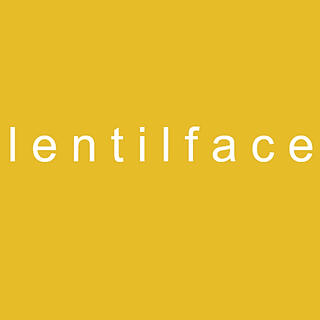WHAT IS 'LENTILFACE'?
- Admin
- Oct 10, 2017
- 4 min read

Veganism is great.
There is a multitude of compelling reasons to go vegan – animal rights, environment, health…just to name a few.
Whilst I admire those who are full-time, committed vegans, I also recognise that for many the concept of going full-vegan seems unachievable. I believe it's a very defeatist point of view to think that an all-or-nothing approach is the only way to do it, setting many up for failure & leading most to give up on the idea before even trying it.
I have considered myself a ‘flexitarian’ for more than 3 years now – my preference is for vegetarian foods but when cooked for by others, eating out or on occasion when I generally have an appetite for it I will allow myself to eat meat. This, for some people, may seem outrageous… "Isn’t this a blog about veganism?! She’s talking about eating MEAT!?" but that is exactly the issue…my belief is that some need a happy in-between; a more flexible approach; a diet that reduces the negative impact that the meat and dairy industry has on the world (read more about that here) but is not so restrictive that it deters omnivores, flexitarians, vegetarians from giving it a try. Afterall, inspiring 10 people to cut their meat consumption by half will likely have more impact than 1 person going vegan.
*E N T E R L E N T I L F A C E*
I want to start by saying this is very much my own personal approach to my diet and lifestyle choices; developed by me for me. As an associate nutritionist, I have learnt throughout my 4 year degree and beyond what works for me and makes me feel my best self. My aim of sharing this approach is to inspire others to give it a try and find out what works for them – we are all built differently and there is no one-size-fits-all approach to diet!
So what is my personal approach?
Following on from my trial period of veganuary, I felt so good that I decided to maintain my new approach to day-to-day eating indefinitely.
On weekdays I am mainly just cooking for myself so 90% of the time the meals I make are vegan. When I am visiting friends, boyfriend or family and they are cooking for me I will gladly eat the food they have to offer. I am in no way adverse to sharing my preference for meat-free alternatives, but as an individual feel comfortable eating animal and animal-derived products on occasion. The point is I do so consciously.
How is this different to being an omnivore?
Well, it is and it isn’t.
Yes, a happy side affect is that I feel fab following this approach to diet and lifestyle – healthful and happy – however in the past I have found the same through eating a ‘clean’ diet which did include animal products. Chicken, fish, eggs, yogurt etc are good for many people and I wouldn’t suggest that they are not – these are foods I enjoy eating but consciously restrict my consumption of due to the negative impacts the meat and dairy industry has on the environment and well-being of the animals involved. I recognise that I need to take responsibility for my contribution to this as individuals to make a difference on a larger scale. It's a key motivator for my flexitarianism and I recently found that others share a similar vision.
Another motivator is proving there are tasty alternatives to consuming animal products - it's a hobby of mine, trawling Pinterest, food blogs, cook books and magazines for fab looking recipes and veganising them. All recipes on this site are my own, but inspiration is everywhere!
"But humans are meant to eat meat!"
Yes, our ancestors ate meat.
Yes, we can digest it.
Yes, some of the nutrients are beneficial (although there is nothing you can get from meat that you cannot get elsewhere with less calories and fat).
But does that mean we need to eat meat in this day of accessible, nutritional, T A S T Y alternatives? Certainly not.
The response to this decidedly ignorant statement can very depending on the cause the vegan on the receiving end is most motivated by (animals, health, environment - learn more here). Arguably, from an ethical and environmental view point, it is factory farming that is the main issue, not eating meat as such. So yes, our ancestors ate meat, but their meat consumption was radically different to modern day factory farmed, mechanically reconstituted, processed, hormone injected meat that is on the plate today.
What would happen if the world suddenly went vegetarian?
Very interesting read from the BBC:
"Fortunately, the entire world doesn’t need to convert to vegetarianism or veganism to reap many of the benefits while limiting the repercussions – Instead, moderation in meat-eating’s frequency and portion size is key."
In summary, flexitarianism has backing by environmental and social sciences and you will lose nothing by giving it a go.
Further Listening
Carnism vs Veganism - If you aren't open to becoming vegan, become a vegan ally by at least trying to understand the cause.
"Then go vegan except for cheese!" - A similar approach to mine, combating excuses and making changes for positive change.

Have questions about flexitarianism, reducetarianism or lentilface in general? Contact me here!




Comentários